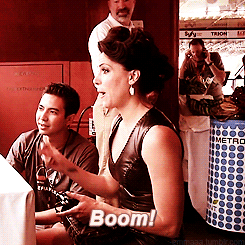So I've (basically) done the reading, and I have Thoughts on the 3/4 mark of Grapes of Wrath. Which shall be SUMMARIZED, because it's late in the day/week.
John Ernst Steinbeck, what are you doing. I know you were probably frustrated by how the people emigrating from the Heartland were being treated, and the destitution you saw, but SIR. It was the Great Depression. Things were bad in a lot of places, and not just with farmers, and not just because of tractors. And despite how this section was, in reality a lot of people are not nice. They just aren't. Which is why you can't paint the government camp as this utopian ideal of civilization. It's portrayed like heaven, and if someone is bad, they get kicked out. But if you want all of society to be like that, TO WHERE DO THE BAD PEOPLE GET KICKED? There are so. SO many problems with your ideal. It only works (MAYBE works) in a microcosm.
Chapter 23 is poetry. It's beautiful. Let us all respect chapter 23, except for the next point.
Steinbeck's opinion on religion changed, I think, between Grapes of Wrath and East of Eden, because he's got a damn bee in his bonnet about it here. And fine. Be upset about some of the bad aspects. We all are. But saying that people trying to be humble before God "grovel and whine on the ground" is tremendously not ok.
Two best lines in this section:
And she strode away titanically, and her eyes shone with virtue.
Rose of Sharon kept her eyes resentfully on the potatoes.

Comments
Post a Comment